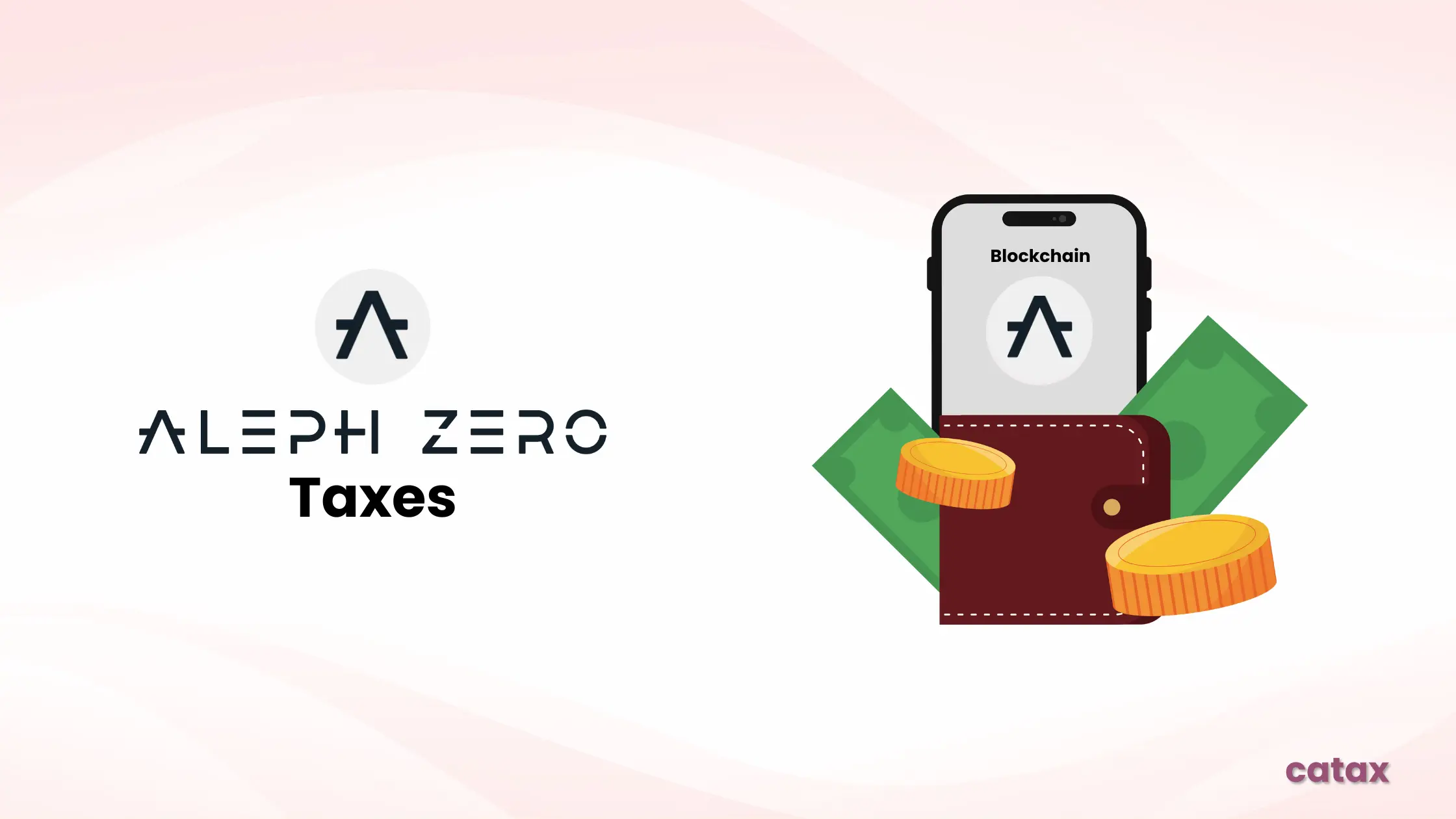Cryptocurrency tax laws vary significantly across the globe, and Aleph Zero (AZERO) is no exception. When you buy, sell, trade, or stake Aleph Zero. You may create a taxable event depending on the regulations in your country. Tax authorities in different jurisdictions treat crypto transactions differently—some view them as property, others as assets, and some even as income.
That’s why it’s essential for you to understand how your local tax authority classifies and taxes various crypto-related activities. Whether you’re making a profit from trading AZERO, earning staking rewards, or simply holding the token, your tax obligations could differ.

- How to Connect Your Aleph Zero Wallet to Catax
- Are Aleph Zero (AZERO) Transactions Taxable?
- Can You Deduct Trading Fees and Other Costs?
- How Is Aleph Zero (AZERO) Taxed Based on Holding Time?
- How Is Staking Income from Aleph Zero Taxed?
- Can You Use Aleph Zero Losses to Lower Your Taxes?
- How to Stay Compliant with AZERO Tax Regulations
How to Connect Your Aleph Zero Wallet to Catax
To properly track your Aleph Zero transactions and calculate your taxes, you can connect your wallet to Catax. It’s a straightforward process that ensures all your activity is captured automatically:
- Open your Aleph Zero wallet or block explorer (such as MetaMask, Trust Wallet, Ledger, etc.).
- Locate your public wallet address and copy it.
On Catax:
- Log in to Catax and select your country.
- Choose Chain and then search for Aleph Zero Wallet.
- Paste your public address and click Connect.
Catax will now sync your transactions automatically and help you calculate your tax obligations in real-time.
Calculate My Taxes ➤Are Aleph Zero (AZERO) Transactions Taxable?
Yes, most countries treat cryptocurrency transactions as taxable, and Aleph Zero (AZERO) is no different. However, how your AZERO transactions are taxed depends on how you use the token. Let’s break it down:
- Selling AZERO for profit: If you sell Aleph Zero for more than you originally paid, you trigger a capital gains tax on the profit you made.
- Paying for goods or services with AZERO: If the price of Aleph Zero has increased since you purchased, using it as payment is considered a capital gains tax event.
- Earning AZERO from staking: In many jurisdictions, you must report staking rewards as income on the day you receive them. The value of AZERO at the time of receipt becomes your taxable income.
Because crypto tax rules vary from one country to another, it’s best to check with local regulations or use a tool like Catax that applies the right rules based on your location.
Can You Deduct Trading Fees and Other Costs?
This is a frequently asked question from users of Aleph Zero, and it depends on your country’s tax laws! Some countries will allow you to deduct any expense related to your crypto transactions. Here are some common examples:
- Exchange fees charged when buying or selling AZERO.
- Network fees you pay while transferring AZERO between wallets.
However, not all countries permit all of these deductions, and in some cases, you may only be able to deduct the purchase price (cost basis) and eliminate other fees. It is important that you check your local guidance, or seek our tax specialist for clarification.
You can also check out our Country-Specific Guide for Crypto in Your country. This guide provides insights on regulations, tax implications, and compliance measures breifly explained for each country.
How Is Aleph Zero (AZERO) Taxed Based on Holding Time?
The taxes you pay on profits from Aleph Zero will depend on how long you’ve held your tokens:
- Short-term holdings: If you sell AZERO within one year of buying it, you may face higher tax rates similar to your income tax rate.
- Long-term holdings: If you hold your AZERO for longer than a year, most countries will have an improved tax rate available for long-term capital gains.
- Flat rate countries: In some countries there is one tax rate regardless of how long you hold the crypto.
Understanding your country’s treatment of crypto holding periods can help you make an informed decision when to sell to minimize taxes.
How Is Staking Income from Aleph Zero Taxed?
When you earn rewards by staking Aleph Zero, you’re likely creating a taxable event—regardless of the amount. Most countries treat staking rewards as a form of income, and tax authorities almost always expect you to report them.
- Taxed as income: Some countries tax the staking rewards as soon as you actually receive them and therefore would need to report them at the end of the year as part of your total income.
- Taxed as capital gains: Other countries will wait until you actually go ahead and sell or exchange the staking rewards you received, and will only tax the profits you made when you sell or exchange the staking rewards.
Other countries will wait until you actually go ahead and sell or exchange the staking rewards you received, and will only tax the profits you made when you sell or exchange the staking rewards.
Can You Use Aleph Zero Losses to Lower Your Taxes?
Yes, if you sell AZERO for a loss in many countries, you may claim that loss to reduce your tax bill. Here is what is typically done:
- Offsetting gains: Losses from Aleph Zero can be used to offset gains from other crypto or possibly stocks.
- Carrying forward losses: If you don’t have gains in the same year, some places allow you to carry your losses forward to reduce taxes in the future.
- No deductions: A few countries don’t allow any deductions for crypto losses, so you’ll want to double-check your local rules.
Make sure you keep records of all your transactions so you can prove your losses if needed.
How to Stay Compliant with AZERO Tax Regulations
As governments get stricter about crypto taxes, it’s important to follow the rules and stay up to date. Here’s what you should do to remain compliant:
- Learn how your country taxes Aleph Zero: Is it treated as income, capital gains, or business income?
- Understand what costs you can deduct: Know whether trading fees, staking rewards, and security expenses are deductible.
- Keep accurate records: Track every Aleph Zero transaction, including buying, selling, trading, staking, and spending.
- Use a crypto tax calculator: A platform like Catax can help you calculate and file taxes correctly.
- Talk to a tax professional: If you’re unsure about anything, it’s smart to consult a tax advisor familiar with crypto laws in your country.


